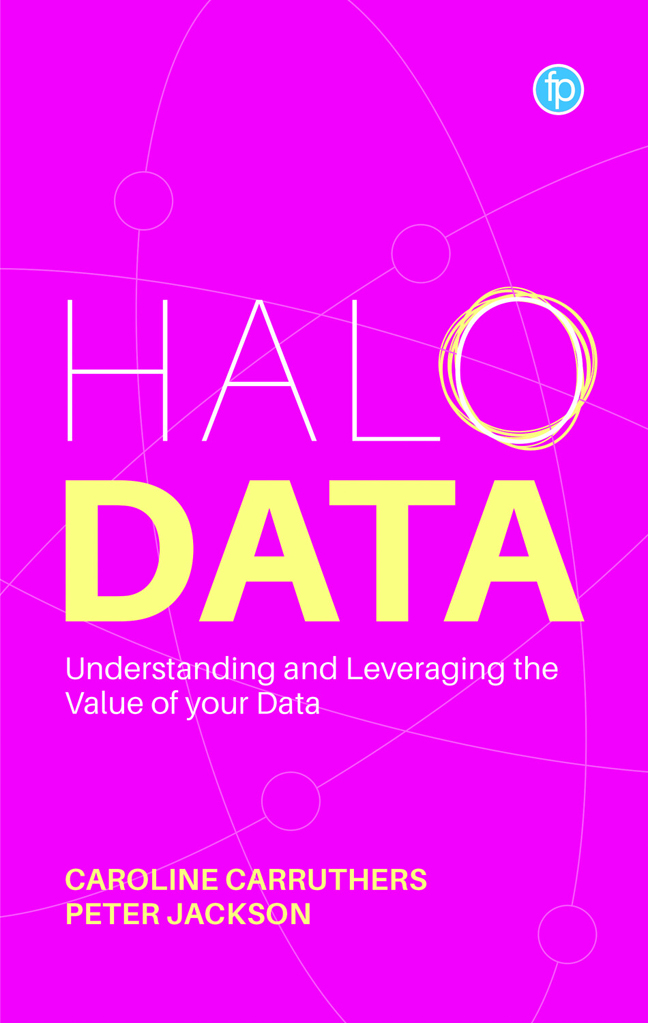Book contents
- Frontmatter
- Dedication
- Contents
- Figures and Tables
- About the Authors
- Acknowledgements
- Introduction
- 1 Who Owns the Definitions and Terms about Data?
- 2 What is Metadata?
- 3 Other Ideas of Data Value and Monetisation
- 4 Value from a Different Source
- 5 Hello Halo Data
- 6 Getting to Know Halo Data
- 7 Early Examples of Halo Data Approaches
- 8 Halo Data and Data Ethics
- 9 Halo Data Framework
- 10 Halo Data Applied Risk Assessment, Regulation, Customer, the Citizen
- 11 Halo Data and Storytelling
- Conclusion
- Index
3 - Other Ideas of Data Value and Monetisation
Published online by Cambridge University Press: 17 December 2023
- Frontmatter
- Dedication
- Contents
- Figures and Tables
- About the Authors
- Acknowledgements
- Introduction
- 1 Who Owns the Definitions and Terms about Data?
- 2 What is Metadata?
- 3 Other Ideas of Data Value and Monetisation
- 4 Value from a Different Source
- 5 Hello Halo Data
- 6 Getting to Know Halo Data
- 7 Early Examples of Halo Data Approaches
- 8 Halo Data and Data Ethics
- 9 Halo Data Framework
- 10 Halo Data Applied Risk Assessment, Regulation, Customer, the Citizen
- 11 Halo Data and Storytelling
- Conclusion
- Index
Summary
Why do we care about the value of data?
Before we get into what value is or should be, we need to understand why it is important. It is, or should be, obvious why it is important for the data folks (especially the data leaders within the organisation) to be able to demonstrate the value of data, because it is intrinsically linked to proving the value of their work. Everyone who is part of an organisation has to be able to prove their value – that's what objectives are all about.
However, when you are responsible for improving how data is used and driving value from it, then, because data underpins almost all business decisions, you will have a significant impact on the future direction of the company, how well it does, adapts and even thrives based on the decisions it makes. When the data leaders or CDO can't demonstrate value, then you won't get the investment needed for the organisation to work with data effectively, efficiently and creatively.
There are very real consequences for an organisation if it does not utilise data to its fullest extent.
• Time and effort are constantly wasted, as the organisation either is overwhelmed by data or struggles to make decisions because it has no idea which data is correct and which is as smelly as yesterday's fish.
• People get stuck doing repetitive tasks that should be easy to automate, and they end up bored and demoralised.
• Problems with data just grow. We have tried this before and nothing works, so why would it work if we tried it again? The problems with data and its use just become more convoluted.
• Often, organisations dig themselves deeper into a hole by making short-term fixes or ‘improvements’ so as to get the answer or result that they need now.
• And the list goes on.
But when the narrative changes and data is seen as a value creator rather than a drain on resources and a bottomless pit, then you can get
• the right kind of resources and effort focused on increasing the use of data to positively change the direction of the company;
• better engagement with people across the organisation as they focus on the interesting things rather than the monotony of manual intervention;
• more meaningful results and better decisions, leading to accelerated growth and creating a virtuous circle;
- Type
- Chapter
- Information
- Halo DataUnderstanding and Leveraging the Value of your Data, pp. 21 - 26Publisher: FacetPrint publication year: 2023

